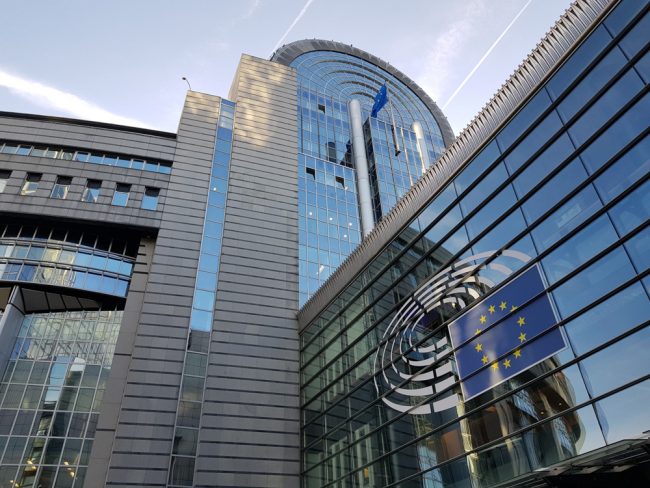
 The latest Eastern Partnership summit offered little to Georgia, raising questions as to what to do next. While officials in Brussels mostly advise patience, discussion in Georgia abound on the best way to attract the EU’s attention further.
The latest Eastern Partnership summit offered little to Georgia, raising questions as to what to do next. While officials in Brussels mostly advise patience, discussion in Georgia abound on the best way to attract the EU’s attention further.
Aspiring to EU membership
Just before the 5th Eastern Partnership (EaP) summit on 24 November, Georgia made it known loud and clear that it had ambitious plans with the EU, the ultimate goal being membership.
Georgia was named the frontrunner among the EU’s six Eastern Partnership countries back in 2015 by European Council President Donald Tusk, and since then has maintained its image as a flagship reformer. After gaining visa free access to much of the EU in 2017, the country’s ambitions have grown even higher. This has brought a whole set of new questions to the table — what will be the next big thing in Georgia’s relationship with the EU? when will it come? and how will Georgia get there?
The country had hoped to get all the answers at the latest EaP summit, but, it did not. It did, however, open wide up discussions on what the EU’s plans for Georgia are, and what Georgia’s plans to join the EU are.
The EU’s inward-oriented policy was modestly acknowledged by the three aspiring countries, who recognised that the EU has been preoccupied with an influx of refugees and Brexit. It would be an exaggeration to say Georgia had big expectations from the Brussels summit, as enlargement talks were clearly out of the question, but soon after the summit, the EU did crack open the window of opportunity for the western Balkans, saying Montenegro and Serbia should be ready for membership by 2025.
This has made it even harder to grasp what the EU’s plans for EaP countries are, as they were offered so little, while so much was promised to the Balkans. Georgia may not openly show frustration, but they are certainly starting to ask whether the EaP format needs to be revised in order for them to see further tangible benefits, and what Georgia should be doing to make this happen.
The (not so) big expectations — why the summit was a failure
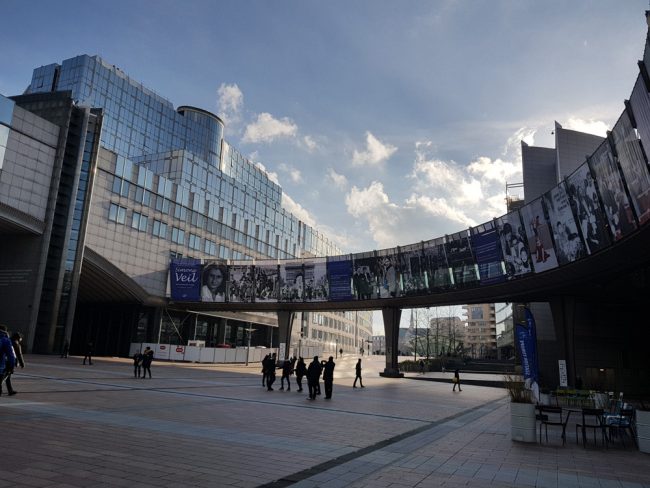
‘The summit did not fulfil our ambitious expectations but we did not really have these expectations, taking into account the situation in the EU countries’, the Head of the Georgian Parliament’s Committee on European Integration, Tamar Khulordava, said on 15 February.
Khulordava later told OC Media that their ambitions remain, but that expectations had been low prior to the summit. This was despite two joint statements issued by the Georgian, Ukrainian, and Moldovan parliaments sent to the EU ahead of the summit, asking for the issue of membership to be addressed in line with Article 49 of the EU Treaty.
The three countries’ 16 September joint communiqué even called on the European Parliament to pass a resolution requesting ‘a practical roadmap for membership’. But the 24 November summit’s declaration says nothing of membership, let alone a roadmap to it.
It’s far more interesting what the summit declaration did not say than what it did. It basically maintained ‘20 deliverables for 2020’ agreed at the 2015 Riga summit. It focused on four key areas, a stronger economy, stronger governance, stronger connectivity, and stronger society, and reinforced the EaP’s commitment to ‘cooperation in a number of specific areas such as small and medium-sized enterprises, digital economy, broadband investments, and investments in transport, energy, and infrastructure projects’.
It did not mention ‘a European perspective’, something that turned out to be of crucial importance to the aspiring countries. The term was used by the European Parliament back in 2014 in a supportive resolution which stated that ‘Georgia — like any other European state — has a European perspective and may apply to become a member of the Union’.
But now that Georgia has been requesting the term be used, and it would perhaps have been taken as a window of opportunity, the summit completely ignored this ‘golden carrot’.
Back in 2016, the Georgian government was taking a far more cautious stand on membership talks. ‘We cannot start planning for membership in 2017 because it’s unrealistic [for the moment] and may trigger unrealistic expectations among the people’, Foreign Minister Mikheil Janelidze said on 28 December 2016. Since the summit, things appear to have changed.
The EU has made it clear it is not going to offer anything new anytime soon, so instead, it’s time for Georgia to start planning. A joint statement issued by three prominent Georgian organisations (GRASS, GIP, OSGF) on 1 December called on the Georgian government ‘to start drafting a comprehensive inter-agency Roadmap for Georgia’s Membership to the European Union, which would encapsulate objectives, priorities, and all the necessary steps to achieve this goal’.
Later in December, the MFA announced it was working on drafting such a roadmap, which would include the maximum involvement in EU programmes, deepening industry-wide cooperation, cooperation on defence and security, energy, transport, and trade.
What MEPs say of Georgia’s membership perspectives
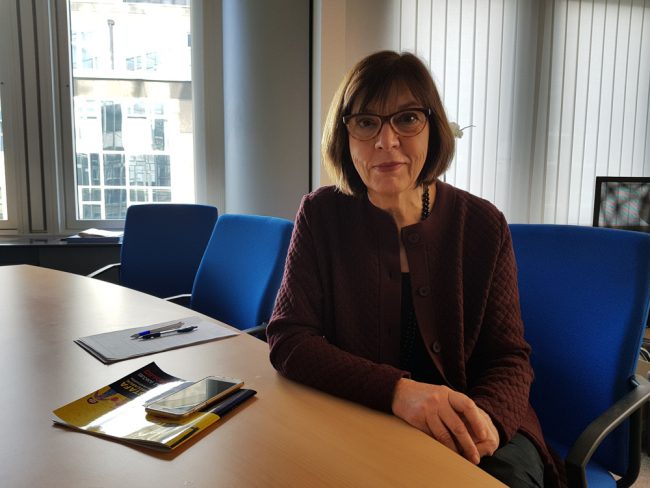
In Brussels, Members of the European Parliament largely advise caution on any hopes of Georgia’s EU goals in the short term.
‘Right now we are not in a situation in which we have such stability internally that we can go into new enlargement steps’, Rebecca Harms, an MEP from the German Greens, told OC Media on 30 January. ‘But we will see further growing of the EU; I’m convinced about it’, she added.
Harms acknowledged the progress Georgia has made in implementing the Association Agreement and said it must be taken seriously as ‘this is the best direction to the EU’. ‘The closer [Georgia comes] to European treaties, and what we have as norms and standards, the better’, she added.
But she also said that there are questions in Brussels regarding the media freedom in Georgia. ‘It’s not the case that somebody says this is very worrying. We see progress and we have questions and also its not a surprise that there are these questions’,
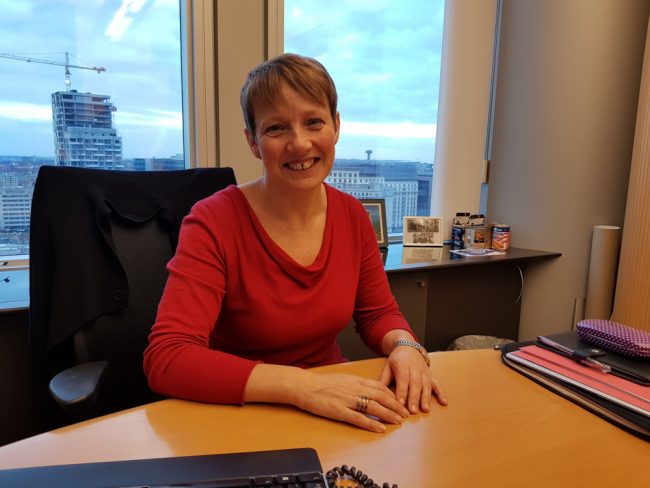
British Labour Party MEP Clare Moody acknowledged the praise heaped on Georgia, and said the country must be congratulated on its progress. She said that with the promise of further enlargement in the western Balkans, ‘there might be a space for the Georgian government to look again’.
‘But what I should also say is that let’s not be unrealistic about this in terms of timelines. I think timelines are potentially unhelpful’, she told OC Media.
Finnish Greens MEP Heidi Hautala showed even more caution, citing developments in Hungary and Poland.
‘We have started to see that there are problems related to, for instance, very fundamental values, also in the rule of law. We see that some EU member states are failing. We see Hungary, we see Poland. I think we have to make sure that the next wave of enlargement with the western Balkan countries is not going to make the situation worse’, she told OC Media.
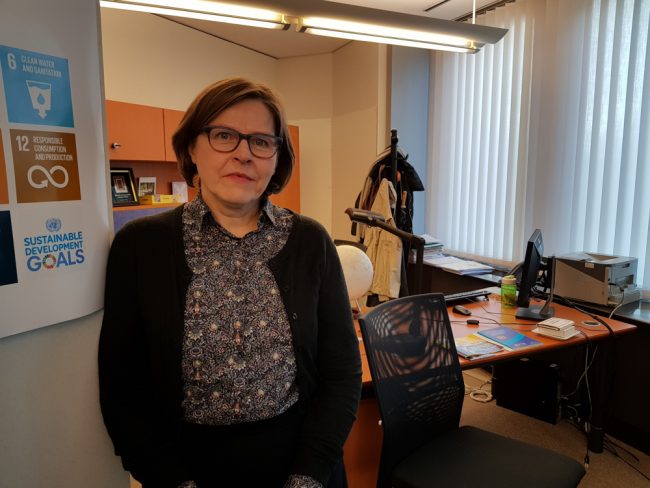
Hautala said Georgia was not far from the standards in some western Balkan countries, but there shouldn’t be expectations that Georgia will become a member soon.
‘That can be a long negotiation’, she said adding that it wasn’t a ‘yes or no’ question.
‘You have to take into account that the EU is kind of becoming a hole from the inside if we don’t deal with the applicant countries when they are still in the phase [where] they have to fulfil all the Copenhagen criteria’, said Hautala. The Copenhagen Criteria are the standards defining whether a country is eligible to join the EU.
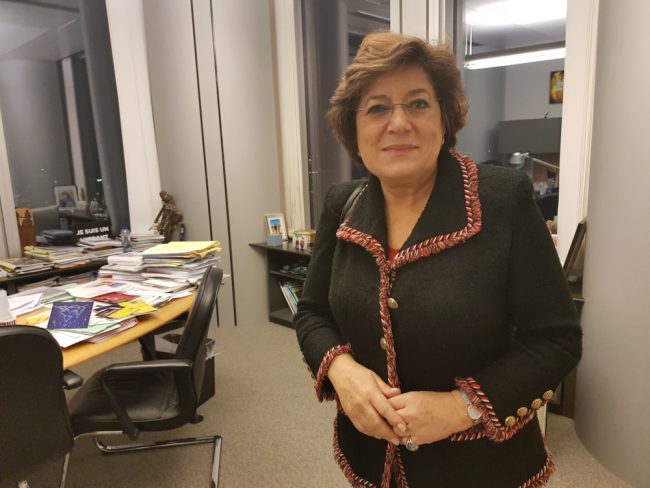
Portuguese Socialist Party MEP Ana Gomes said one of the things to help consolidate Georgia’s European path was ‘concrete developments in terms of economic relations between Georgia and the EU’.
‘I think there’s a great potential for the development of the economy of Georgia linked to the EU. This will be something that all Georgians will appreciate, and that will help consolidate Georgia’s European way’, she told OC Media.
She said that while now might not be the right time to apply for membership, Georgians can still ‘move forward on that European path’, and need to embrace ‘European values’
The challenges ahead for Georgia
Georgia’s political and economic ties with the EU are stronger now than ever before. Georgia has committed to fulfilling the Association Agreement and has received praise for its progress. Europe is now Georgia’s primary trading partner, with around 30% of external turnover coming from EU countries. But there is more to measuring Georgia’s fitness for joining the union.
Beside a competitive market economy and the ability to effectively implement the obligations of membership, ‘stable institutions guaranteeing democracy, the rule of law, human rights, and respect for and protection of minorities’ are among the Copenhagen Criteria that the country will have to meet. And this is where it gets challenging.
Sergi Kapanadze, an MP from the opposition European Georgia party, says there is a lot to improve regarding the stability of institutions guaranteeing democracy.
‘We cannot escape the fact that there is an informal ruler [former PM Bidzina Ivanishvili] and there is a need for greater institutional accountability. For example, the government doesn’t answer parliament’s calls to participate in discussions and fails to ensure accountability. This can be improved’, he said at a public discussion, Europe and the new world ‘disorder’ on 15 February.
The other requirements also remain a challenge. Georgia has recently faced criticism on its application of the rule of law in the wake of Afgan Mukhtarli and Mustafa Emre Çabuk’s cases. Mukhtarli, an Azerbaijani investigative journalist in exile in Georgia, was most likely kidnapped by Azerbaijan’s security forces from outside his home in Tbilisi (allegedly with the help of Georgian security forces) and has now been sentenced by Azerbaijan to 6 years in prison. Çabuk is a former school manager who Turkey says is connected with opposition figure Fethullah Gülen, he is currently undergoing extradition proceedings to Turkey, where rights groups say he will be denied a fair trial and face torture.
[Read on OC Media: German MEP says Georgia should not extradite Çabuk]
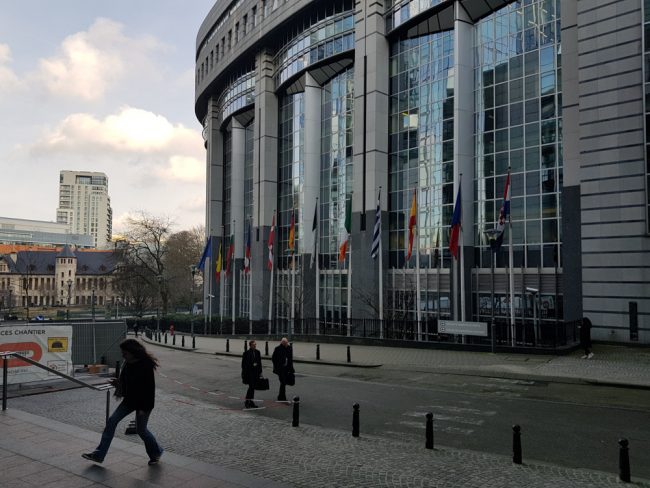
The situation surrounding human rights and minorities is something the government needs to invest a lot into as well. The Public Defender has issued repeated reports on discrimination and mistreatment of marginalised groups such as religious and ethnic minorities, queer people, etc.
Vano Chkhikvadze, EU Integration Programme Manager at the Open Society Georgia Foundation, says that a country aspiring to EU membership should behave like a candidate in order to succeed. ‘The Copenhagen Criteria is a crucial part’, he says, ‘rule of law being one of the most important among them’.
Chkhikvadze told OC Media that Georgia must become a success story in the eyes of the EU, to impress them and elicit interest in them as a possible member.
‘The frozen process is beginning to melt and it’s up to us how we will use this opportunity. Currently there is no consensus on how Georgia should do this — by pushing for membership ambitiously or waiting to be given a “perspective”. This shouldn’t be “wishful thinking”, but a very concrete plan on how we are going to convince the sceptic countries’, he said.
He points to several issues he says should be addressed in order to succeed, including the poor cooperation between Eastern Partnership aspirants Georgia, Ukraine, and Moldova. He also says Georgia should take a more proactive stand, as the pace is currently being dictated by the EU, and thus doesn’t make come up in its agenda. And thirdly, he says there is a need to change the format of cooperation with EU as the ‘current format doesn’t answer to the ambitions and needs some of the countries have’.
Sergi Kapanadze of European Georgia agrees; he says the Eastern Partnership format has been exhausted and needs revision.
‘I think the next strategy should be similar to the strategy for the Balkans, like the Stabilisation and Association Agreement or Pre-Accession Strategy. And if such a strategy doesn’t come in soon, there could even be a backslide’, said Kapanadze, adding that the EU must provide Georgia with more resources, including financial help.
Tamar Khulordava of the Euro-Integration Committee remains optimistic given the launch of the EU’s enlargement talks in the Balkans.
‘At one point, we did not see much enthusiasm from our European colleagues when we discussed our plans and ambitions. I don’t want to say that we have the same reasons to be optimistic [as the Balkans have], but the taboo has been lifted’, she said.
With no immediate ‘carrot’ on offer, Georgia’s progress on the way to the EU may be slow. Talks on visa liberalisation started in 2012 and took just five years to complete because the criteria of the Visa Liberalisation Action Plan were not so high, and the ‘carrot’ was within reach. But if the EU decides to link the beginning of membership talks primarily with Georgia's implementation of the Association Agreement, it may take longer than a decade before the window of opportunity cracks open for Georgia, and in the meantime, the political landscapes may well shift again.




 2 March 2018
2 March 2018



